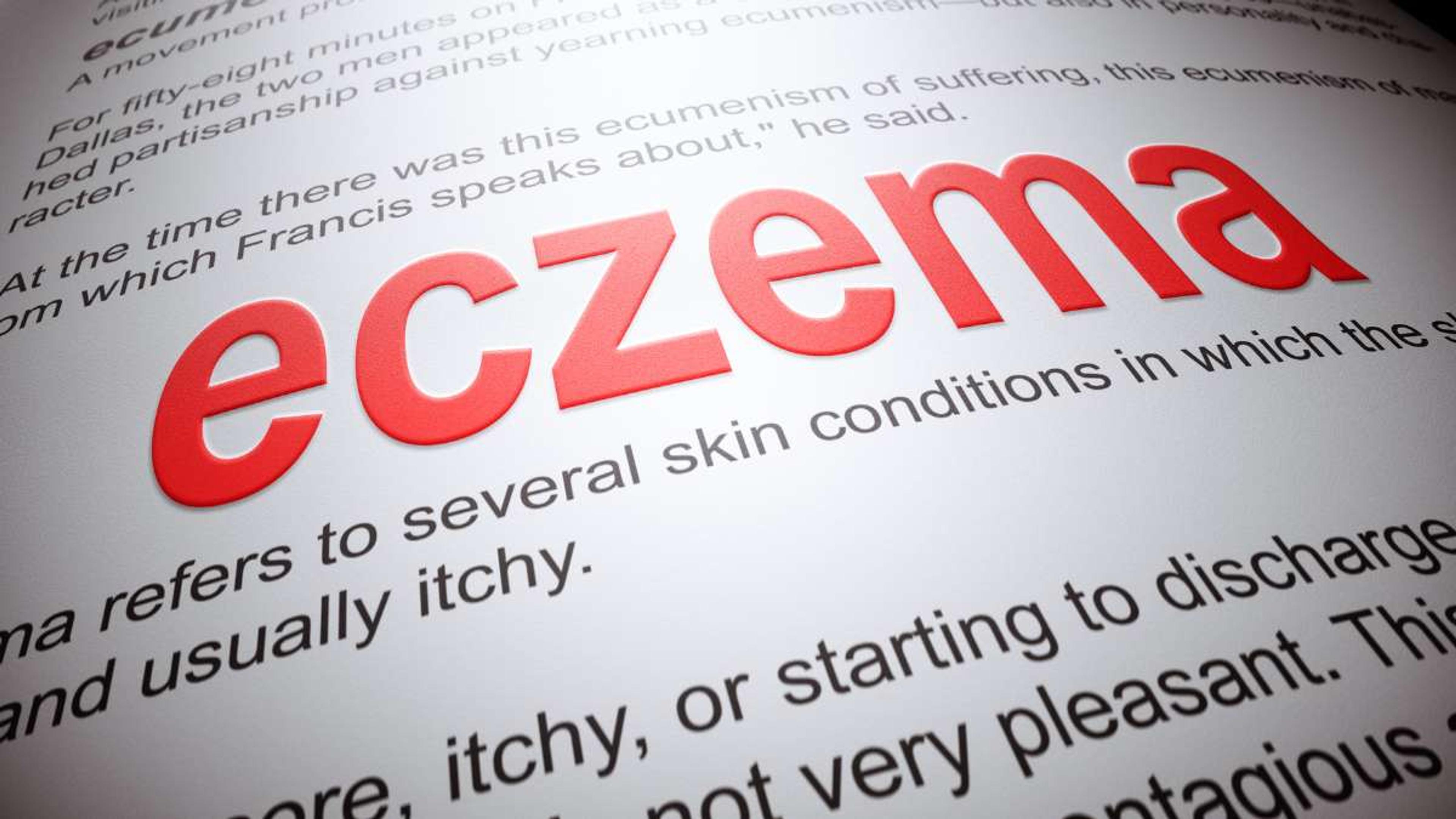Vegan Diet Eczema: How to Heal Naturally

- Key Takeaways
- Eczema & Potential Causes
- Vegan Diet and Eczema: What Does Research Say?
- 6 Benefits of a Plant-Based Diet for Eczema
- Tips for Following a Vegan Diet for Eczema
- Considerations and Potential Side Effects
- Other Lifestyle Factors
- Conclusion
- FAQs
Do you or someone you know struggle with the frustrating and uncomfortable symptoms of eczema? Well, did you know that your diet could have a significant impact on managing this chronic skin condition? That's right!
In this article, we will explore the potential benefits of following a vegan diet for eczema and how it may help alleviate those pesky flare-ups.
Get ready to discover how simple dietary changes can lead to healthier, happier skin. So let's dive in!
Key Takeaways
- Eczema is a chronic skin condition that can be managed by making dietary changes, such as following a vegan diet.
- Studies have shown that adopting a vegan diet may help improve eczema symptoms, especially for those with specific types of eczema like atopic dermatitis.
- A vegan diet can provide benefits for individuals with eczema, including reducing inflammation, removing potential trigger foods like dairy, and increasing intake of skin-healthy nutrients.
- Tips for following a vegan diet for eczema include incorporating fruits and vegetables, including foods rich in omega-3 fatty acids, ensuring adequate protein intake from plant-based sources, considering supplements for specific nutrients, and including vegan foods rich in vitamin E.
Eczema & Potential Causes

Eczema is a skin problem many people face. Eczema, also known as atopic dermatitis, is a chronic skin condition that affects millions of people worldwide. It is characterized by inflamed, itchy, and dry skin, often accompanied by redness and rashes. While the exact cause of eczema is still not fully understood, researchers believe that a combination of food intake, genetic and environmental factors play a role in its development.
In the US, about 31.6 million people showed signs of it. Teens and children are getting more cases of eczema than ever before. It makes them sleep less, work less well, and feel bad about themselves.
One potential trigger for eczema flare-ups is certain foods. Dairy products, gluten, eggs, and nuts are among the common culprits that can exacerbate symptoms in some individuals.
People with eczema often also have food allergies - this is true for up to 80 percent of them! Eczema doesn't care who you are - it can affect anyone from any place or age group.
Traditional Treatments
Many people use lotions and creams for eczema. Some also take medicines from doctors. But these ways do not always stop the skin rash. So, some persons look to food for help. They believe what they eat can make their eczema better or worse.
Studies show that a diet with no meat may soothe the skin problem in some people. This is because many plants have the essential nutrients that fight body swelling and pain, which can cause eczema.
Vegan Diet and Eczema: What Does Research Say?
Numerous studies have shown promising results in improving eczema symptoms through a vegan diet.
Some types of eczema, like atopic dermatitis, get better when dairy is taken out from the meal plan. These studies also say that eating foods that fight inflammation and antioxidants helps with eczema signs.
Research suggests that a vegan diet can indeed reduce eosinophils in the blood, which are known to cause allergies and contribute to eczema flares.
By eliminating animal products and focusing on plant-based foods, individuals with eczema may experience a decrease in inflammation, improved skin symptoms, and overall relief. The essential nutrients found in many plants help fight body swelling and pain associated with eczema, providing a natural approach to managing this condition.
While results may vary from person to person, incorporating a vegan diet into your lifestyle could potentially alleviate eczema symptoms and improve quality of life. It is also important to note that there might be some plants can make eczema worse, even on a plant-based diet.
More research is going on about how plant-based food impacts skin health both generally and in terms of dry skin conditions like eczema.
6 Benefits of a Plant-Based Diet for Eczema
A plant-based diet can provide numerous benefits for individuals with eczema, including a reduction in inflammation, removal of potential trigger foods, and increased intake of skin-healthy nutrients.

1. Reduction of Inflammation
Inflammation is a common symptom of eczema, causing redness, swelling, and itching. Anti-inflammatory diets, including vegan diets, avoid foods like dairy, red meat, flour, and sugar while emphasizing vegetables. Therefore, individuals with eczema can potentially see a reduction in inflammation, leading to improved skin symptoms and overall relief.
2. Removal of Potential Trigger Foods
Eliminating potential trigger foods such as, dairy, gluten, refined sugar, soy and certain nuts and seeds on a vegan diet can cause flare-ups. Dairy is often misunderstood as a nutrient but can actually increase inflammation in people with eczema.
By removing these foods from the diet, individuals can identify which ones specifically worsen their symptoms through an elimination diet.
3. Increased Intake of Skin-Healthy Nutrients
A plant-based diet that includes fruits, vegetables, whole grains, legumes, and nuts provide an increased intake of skin-healthy nutrients, such as vitamin C, vitamin E, fiber, and phytochemicals. These nutrients are beneficial for skin health, may help alleviate eczema symptoms and give your body the necessary tools to promote optimal skin health.
4. Prevention of Dry Skin
Some vegan sources of vitamin E that can benefit individuals with eczema include pumpkin, avocado, and sweet potatoes. These foods are rich in antioxidants, which help prevent and treat dry skin and eczema.
Vitamin E also has anti-inflammatory properties that can reduce the redness and irritation associated with eczema symptoms. Including these vegan sources of vitamin E in a plant-based diet can contribute to better skin health for individuals with eczema.
5. Healthy Gut Microbiome
Fiber is an essential nutrient for our overall health, including our skin. Fibre-rich vegan sources like fruits, vegetables, whole grains, legumes (like beans and lentils), and nuts and seeds not only provide the necessary roughage for healthy digestion but also contribute to reducing inflammation in the body, which can be beneficial for those with eczema.
These sources of fiber also help maintain a healthy gut microbiome, which plays a crucial role in maintaining overall skin health.
6. Supports Collagen for Healthy Skin
Vegan sources of vitamins A, C, and D, as well as zinc, play an important role in managing eczema. Vitamin A helps in the growth and repair of skin cells while vitamin C supports collagen production for healthy skin. Vegan foods like carrots, sweet potatoes, spinach, citrus fruits, and bell peppers are rich in these vitamins. Vitamin D is crucial for immune function and can be obtained from sunlight exposure or vegan sources such as fortified plant-based milk and mushrooms.
Zinc is known to have anti-inflammatory properties that can benefit eczema. Plant-based sources of zinc include legumes, nuts and seeds (such as pumpkin seeds), whole grains (like quinoa), tofu/tempeh made with soybeans.
Tips for Following a Vegan Diet for Eczema

Incorporate a variety of fruits and vegetables
- Eat a variety of fruits and vegetables to get a range of nutrients that can help improve eczema symptoms.
- Fruits and vegetables are rich in antioxidants, vitamins, and minerals that support skin health.
- Examples of fruits that are good for eczema include bananas, which are high in fiber, potassium, and vitamin C.
- Leafy greens like spinach and kale are also beneficial due to their anti-inflammatory properties.
- Colorful fruits such as berries and oranges provide vitamins A and C, which promote healthy skin.
- Include vegetables like broccoli, carrots, and sweet potatoes for their vitamin E content that helps reduce inflammation.
Include foods rich in omega-3 fatty acids
Including foods rich in omega-3 fatty acids reduce inflammation and improve skin health. Here are some examples of omega-3 rich foods:
- Vegetable oils: Flaxseed oil, soybean oil, and canola oil are all high in omega-3s.
- Nuts: Walnuts are especially rich in omega-3s and make a great snack or addition to meals.
- Seeds: Flax seeds and chia seeds are both excellent sources of omega-3 fatty acids.
- Leafy vegetables: Spinach and kale contain omega-3s along with a variety of other beneficial nutrients.
Ensure adequate protein intake
Adequate protein intake is important for overall health, especially for those following a vegan diet for eczema. Here are some tips to ensure you're getting enough protein:
- Include plant-based protein sources such as legumes (e.g., lentils, chickpeas), tofu, tempeh, and edamame.
- Incorporate whole grains like quinoa, brown rice, and oats into your meals.
- Add nuts and seeds like hemp seeds and walnuts to your salads or snacks.
- Include soy products like tofu or soy milk in your diet.
Include vegan foods rich in Vitamin E
Vitamin E can benefit your skin and potentially improve your eczema symptoms. To increase your intake of this important nutrient, make sure to include these vegan foods in your diet:
- Almonds: These nuts are a great source of Vitamin E and can be enjoyed as a snack or added to salads and stir-fries.
- Sunflower seeds: Sprinkle these seeds on top of soups, smoothies, or yogurt for an extra dose of Vitamin E.
- Avocado: This creamy fruit is not only delicious but also packed with Vitamin E. Try adding it to sandwiches or making guacamole.
- Spinach: This leafy green is not only rich in iron but also contains Vitamin E. Add it to salads, soups, or sauté it as a side dish.
- Broccoli: This cruciferous vegetable is full of nutrients, including Vitamin E. Steam or roast it for a healthy side dish.
- Butternut squash: Roast this sweet vegetable in the oven for a tasty and Vitamin E-rich addition to your meals.
Considerations and Potential Side Effects

1. Nickel-rich foods and their impact on eczema
Some foods that are high in nickel can potentially worsen eczema symptoms in individuals who have a sensitivity to nickel. If you have a sensitivity to nickel and are following a vegan diet for your eczema, it's important to be mindful of the nickel content in certain foods. Here are some common nickel-rich foods that you may want to limit or avoid:
- Chocolate: While dark chocolate is often considered a healthy treat, it can be high in nickel. Opt for carob-based treats as an alternative.
- Whole grains: Certain whole grains like wheat and oats can contain moderate levels of nickel. Consider incorporating other gluten-free grains like quinoa or rice into your meals.
- Chickpeas: Some legumes, such as lentils and chickpeas, can also contain nickel. If you notice that these foods worsen your eczema symptoms, consider reducing your intake or finding alternative sources of protein.
- Spinach: While spinach is a good source of Vitamin E, it is also known to contain nickel. If you're concerned about the impact on your eczema, try incorporating other leafy greens like kale or Swiss chard into your diet instead.
2. Avoidance of trigger foods
Avoiding trigger foods is important for managing eczema. Here are some foods to watch out for or avoid if you have eczema:
- Milk and dairy products, such as cheese, yogurt, and cream
- Peanuts and peanut products
- Eggs in any form
- Soy and soy-based products
- Wheat, including bread, pasta, and baked goods
- Seafood and shellfish
3. Ensuring proper nutrient balance
To ensure a proper nutrient balance on a vegan diet, it's important to pay attention to certain nutrients that may be lacking. Switching to a vegan diet can lead to deficiencies in calcium, potassium, magnesium, and zinc.
To address these deficiencies, it's recommended to incorporate plant-based sources of these nutrients into your diet. For example, you can get calcium from fortified plant milk or leafy greens like kale and spinach.
Potassium can be found in legumes and fruits like bananas and avocados. Magnesium is present in whole grains such as brown rice and quinoa. And for zinc, include foods like soy products, hemp seeds, walnuts, and legumes in your meals.
Other Lifestyle Factors
Manage stress with relaxation techniques, stay hydrated, avoid trigger foods, establish a skincare routine, and seek guidance from healthcare professionals or registered dietitians.
Importance of hydration
Proper hydration is crucial for managing eczema and maintaining healthy skin. Drinking enough water helps to keep your skin moisturized, preventing dryness and irritation that can worsen eczema symptoms.
Hydration plays a key role in preventing flare-ups and relieving the discomfort associated with eczema. Staying adequately hydrated supports overall skin health, making it an essential aspect of eczema management.
Remember to drink enough water throughout the day to maintain optimal hydration levels and support healthy skin function.
Consulting with a healthcare professional or registered dietitian
If you suspect that your eczema is related to certain foods, it can be helpful to work with a registered dietitian. They can guide you in following an elimination diet to identify any food sensitivities that may be triggering your eczema flare-ups.
Consulting with a healthcare professional or registered dietitian is also recommended if you want personalized advice on managing your eczema while following a vegan diet. Keep in mind that there are no one-size-fits-all dietary recommendations for eczema, as the causes of the condition vary from person to person.
It's important to consider other factors like stress management and skincare routines alongside consulting with professionals for optimal eczema management.
Conclusion
In conclusion, following a vegan diet may have potential benefits for managing eczema symptoms. Research suggests that removing dairy and inflammatory foods from the diet can lead to improvements in skin health.
However, it is important to remember that each individual's experience with eczema is unique, and consulting with a healthcare professional or registered dietitian is crucial before making any drastic dietary changes.
FAQs
1. What is eczema?
Eczema is a chronic condition causing rashes, acne, and itchy skin caused by allergens or irritants making the condition worse.
2. Can a vegan diet help with eczema?
Yes, a vegan diet can potentially help with eczema. Many people have found relief from eczema symptoms by eliminating dairy and other animal products from their diet. Vegan diets tend to be rich in fruits, vegetables, and whole grains, which can provide essential nutrients and support skin health.
3. Are there any health benefits of having a vegan diet for my eczema?
Yes, a balanced vegan diet rich in oatmeal, kimchi, and plenty amino acids helps to boost the immune system, reduce inflammation and provides moisture to aid skin's health.
4. Can switching to veganism cure severe cases of eczema?
In severe cases of eczema you should always seek advice from your dermatologist before making drastic changes like completely changing your nutrition or diet.
5. I have asthma and nut allergies as well as eczema. Can going vegan still benefit me?
It may do but you need to watch out for nut based foods in many aspects of a Vegan lifestyle because it could cause other health problems linked with nut allergies.
6. Is the Vegan Diet good for children suffering from Eczema?
Vegan diets can be healthy for kids if carefully planned but consult with their doctor about weight loss issues tied to obesity or nourishment concerns before starting them on this type of nutrition plan.

